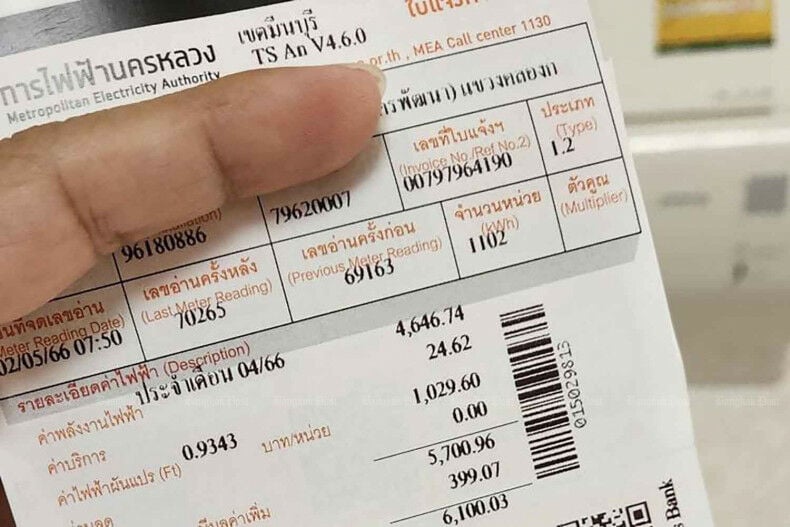TCC proposes temporary power tariff reduction for Thai households

The Consumers Council (TCC) has proposed a temporary reduction in power tariffs to alleviate the financial strain on Thai households during the summer’s peak demand.
This request follows the Energy Regulatory Commission’s (ERC) suggested alterations to the current power rate, which critics argue would not result in cheaper electricity bills.
Critics contend that the ERC’s adjustments primarily aim to lessen or eliminate the debts owed to the Electricity Generating Authority of Thailand (EGAT). This debt arises from the EGAT’s efforts to regulate electricity prices through various subsidies.
The TCC argues that the public should benefit from these adjustments, particularly during the summer when electricity usage typically rises due to the increased use of cooling appliances. The council has suggested that, rather than capping the fuel tariff (Ft), which accounts for changes in fuel prices needed for electricity generation, the government should decrease the power tariff. This would lead to a more effective reduction in electricity bills, according to the TCC.
The TCC has recommended that the power tariff be reduced from 4.18 baht per kilowatt-hour to 3.99 baht per kilowatt-hour between May and August this year. TCC Chairwoman Boonyuen Siritham has stated that the Ft could be reduced if the Ministry of Energy allows the Department of Minerals to increase the production of natural gas in the Gulf of Thailand. This would enable more natural gas to be used for electricity generation.
The TCC has also appealed to the ERC to allow the EGAT to import liquefied natural gas (LNG) for energy production, instead of solely relying on the LNG supplied by PTT Plc, Thailand’s energy conglomerate.
Rosana Tositrakul, a member of TCC’s sub-committee on public services, energy, and the environment, has also called on the government to negotiate a new agreement allowing Thailand to borrow Malaysia’s quota for natural gas production in the joint development area (JDA) for two to three years. She noted that Malaysia has previously borrowed Thailand’s gas quota to meet its domestic needs, reported Bangkok Post.
In addition to these measures, the TCC has requested that authorities introduce improved incentives to encourage more people to install solar panels at home.
Latest Thailand News
Follow The Thaiger on Google News:


























